School Students Leave Iran Amid Gloomy Future Prospects
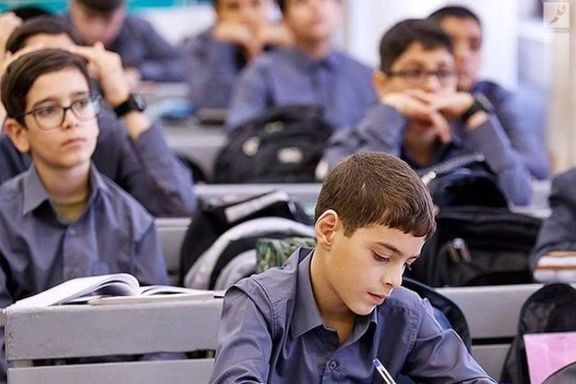
The emigration crisis in Iran has now reached school students who see no future for themselves in the country.

The emigration crisis in Iran has now reached school students who see no future for themselves in the country.
In a report on Wednesday, Etemad daily quoted a teacher as saying that the "students are disappointed."
According to her, the parents of a girl in year nine paid about $12,000 to enroll her in a school affiliated with a university in Toronto, Canada.
She said another reason for the migration of students is the law "urging them to pay thousands of dollars to release their bachelor's and master's degrees".
The government has stepped up pressures and restrictions on students and graduates. The health ministry in September increased the exit permit bond for medical, dental and pharmacy students to $5,000 per year.
Late in November, the parliament presented a proposal to ban students who participate in protests from traveling abroad for ten years. Recently, the Ministry of Science Research and Technology has also approved regulations that would increase the costs of receiving university degrees six to 10 times.
"Families say the amounts they will have to pay in the future to release the degrees, they can spend ... to send their children to study in other countries," said the teacher in the interview with Etemad.
The number of Iranians leaving the country has increased dramatically in recent years due to economic hardship and unemployment leaving a potential brain drain crisis looming.
However, the Iranian government, including the Ministry of Education, has not published any numbers on the migration of students abroad.
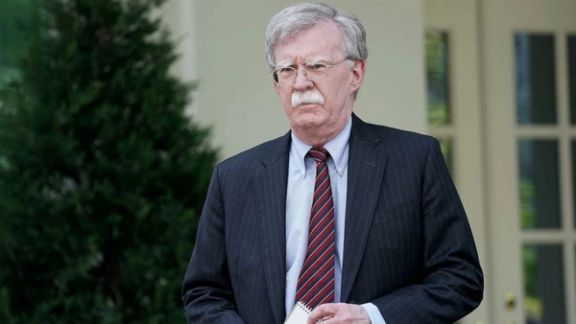
President Joe Biden’s policies on Iran and the Middle East are leading toward a “strategic failure”, former US national security adviser John Bolton says.
In an opinion article in the Wall Street Journal Wednesday, Bolton sharply rebuked Biden for pursuing the revival of the 2015 JCPOA nuclear deal, lax sanctions enforcement against Tehran, and his “apparent disdain for key Middle East allies.” He argued that Iran is overcoming a US policy of containment and Arab regional states, having lost confidence, are open to overtures by China and Russia.
Bolton also accused the administration of opposing an Israeli last resort attack on Iran’s nuclear installations to prevent the possible production of nuclear weapons, and in fact trying to prevent it.
He urged Biden to plan for a regime change in Iran, instead of making a deal that would release billions of dollars to the clerical regime. The former UN ambassador and national security advisor has long advocated that the only way to neutralize the threat posed by Iran is to change its anti-West regime.
At the same time, the Israeli Haaretz newspaper claimed that “major progress” has been achieved in contacts between Washington and Tehran for what appears to be an “interim deal”. In exchange for release of around $20 billion in frozen funds abroad, Iran would stop high-level uranium enrichment, the paper said.
The United States has been demanding that Iran stop its close military collaboration with Russia as a pre-condition for resuming the JCPOA talks. It is not clear that this would be part of an interim and limited agreement. Iran, which supplies weapons to Russia for its war in Ukraine, can use any released funds to accelerate its weapons production.

Khorasan newspaper, a daily linked to Supreme Leader Ali Khamenei's office, has claimed Iran is willing to accept some changes in the 2015 JCPOA nuclear agreement.
The low-key daily's report would have not been noticed much if was not re-printed by Tehran's leading economic daily Donya-ye Eqtesad, which opined that Tehran is likely to accept new terms in the nuclear agreement to which the United States and Iran are the most important parties.
A change in the JCPOA has been suggested by the United States as its precondition for returning to the talks with Iran over its controversial nuclear program. The United States demands some regional defense and security issues to be included in the new agreement nicknamed by the media as JCPOA Plus.
After 18 months of talks to revive the JCPOA came to a halt in September, the Biden administration has been saying it is no longer focused on the issue and has numerated a few conditions Iran must meet.
According to Khorasan, these issues include Iran's cooperation with Russia in the war against Ukraine. However, the daily noted that there are still no signs to indicate that the United States is willing to return to talks as both US Democrats and Republicans see Iran as "a dangerous country that should come under control, and the United States should make sure to prevent Tehran's access to nuclear weapons.

Nonetheless, Khorasan wrote that the Americans have said repeatedly an agreement with Iran is feasible. This comes while Iran has insisted it is willing to return to the 2015 agreement without any changes. The daily, however, added, presumably based on its access to insider information, that Iran is now prepared to accept some changes in the JCPOA if Washington offers guarantees about its commitment to the new agreement.
Khorasan added that regardless of Tehran's readiness to enter a new agreement, the two countries have big differences over non-nuclear issues the United States wishes to include in the document.
Meanwhile, Entekhab news website, which is close to Iran's moderates and the members of Iran's previous administration, quoted former diplomat Javid Ghorbanoghlou as saying that the government of President Ebrahim Raisi has missed the opportunity to revive the JCPOA because of its illogical slogans.
Ghorbanoghlou said that the hardliner members of the Raisi administration previously branded the JCPOA as a "disgrace" but now they wish to revive the same agreement. He added that currently, the United States is not interested in reviving the JCPOA and negotiating with Iran is not among its priorities.
He explained that recent contacts between the US and Iranian officials with the mediation of top Omani officials were merely meant to secure the release of US prisoners [meaning hostages] in Iran, an issue which has key significance for President Joe Biden ahead of the US elections.
Ghorbanoghlou said: Biden needs a victory in foreign policy following the fiasco in Afghanistan and the strategic surprises in Ukraine. Under the circumstances, releasing the prisoners has become a priority for Biden particularly after Belgium and other countries managed to get their imprisoned nationals out of Iran in recent weeks.
The former diplomat said although US efforts have not been successful so far, he is confident some of the US prisoners in Iran will be released soon as mediations are likely to become fruitful.
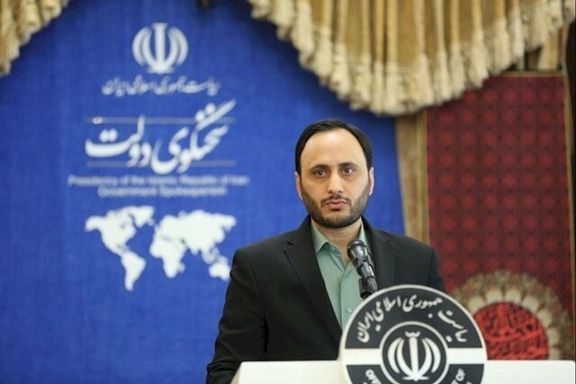
The regime spokesman has confirmed that authorities have access to unrestricted internet while the country faces blackouts.
Asked about the presence and activity of certain Iranian authorities and their children in social media platforms blocked for ordinary Iranians, Ali Bahadori Jahromi likened unrestricted internet access to assault weapons.
"The public don't have access to weapons, but the police have. Permissions are also issued for hunting weapons under certain conditions. The same applies to (social media) platforms, and this is what we see in most countries," Bahadori Jahromi told a gathering of Tehran University students on Tuesday.
He did not explain why the internet is restricted only in a few countries like the Islamic Republic and China, if "most countries" consider social media to be as dangerous as assault weapons.
While the public has very restricted access to the internet and social media platforms like WhatsApp, Instagram, Twitter, and Facebook, Iranian officials are able to have full access. The blockages have meant hundreds of thousands of Iranians are unable to work when already facing the worst economic crisis of recent history.
Documents leaked in January showed that Iran’s ministries of agriculture, communications, and industry had in separate letters requested to have access to unrestricted internet.
In one of those letters, an official at the agriculture ministry asked the communications ministry to provide "free, unfiltered and high-speed" internet to some people listed in the letter.
Since 2016, journalists close to the regime have unrestricted access to the Internet, while the government filtered more apps and websites during protests in recent months.
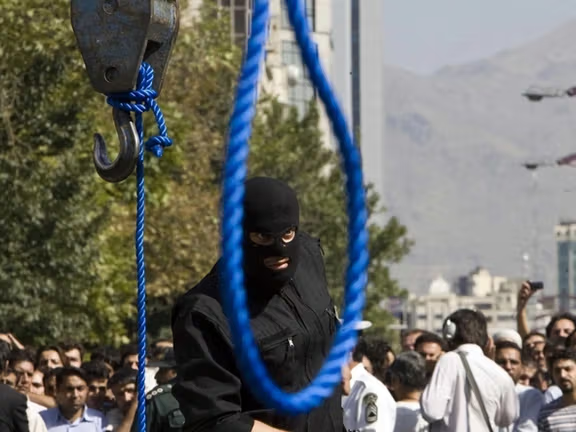
Twelve human rights organizations described the latest wave of executions in Iran as "alarming", calling for an immediate global response.
In a joint statement on Tuesday, they said:“These executions are deliberately designed to spread fear among the Iranian population and quash any form of dissent following the unprecedented nationwide protest movement that began eight months ago.
“Unless the international community takes robust action now, these executions will continue.”
The Abdorrahman Boroumand Center, Article 19, the Baloch Activists Campaign, Impact Iran, and Iran Human Rights are among the signatories against the chilling surge in executions by the Islamic Republic of Iran over the past few months, including the recent wave of executions targeting protesters.
As part of their calls for accountability, the rights organizations urged for targeted measures and restrictions against individuals and entities involved in these arbitrary deprivations of life.
“The recent executions in Iran demand an urgent and united response from the international community. We cannot stand idly by while scores of people are being executed, death row inmates and their families (who may themselves be persecuted for advocating on behalf of their loved ones) are waiting in terror, human rights are trampled upon, and justice is denied. The time for action is now,” read the statement.
At least 142 people were executed in Iran's prisons last month. This is the highest monthly figure since 2015.
Also, the number of executions in the first five months of 2023 has increased by 76% compared to the same period last year.
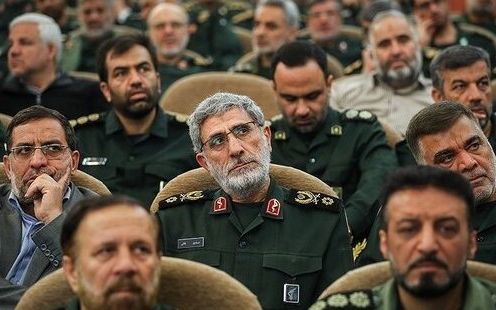
Israeli media reported that a new unit of the Iranian Islamic Revolutionary Guard Corps smuggles supplies and logistics for the Quds Force.
The unit is headed by a former Quds Force official with extensive connections in Iran, Syria, and Lebanon, identified as Gal Frasat, the Israeli weblog Intellitimes reported. According to Iran International's investigations the correct name of the agent is Ali naqi Golparast.
Among its duties will be transferring military equipment to pro-Iranian militias, particularly in Syria and Lebanon, the report adds.
The Qods Force manages most of Iran’s military, intelligence and even political affairs in Iraq, Syria, Lebanon and Yemen.
There have been several headlines regarding Iranian arms sales in recent years, particularly regarding smuggling weapons to terrorist militias in Gaza, Lebanon, and Syria, as well as supplying Russia with weapons during their war on Ukraine.
Last week, Ukraine approved sanctions against the Islamic Republic for a period of 50 years for its supplying weapons to Russia which have wrought havoc to cities in Ukraine. A massive 328 lawmakers voted in favor of the bill.
Among the sanctions were a ban on trade, the transit of Iranian resources, flights, and transportation within Ukraine, according to Ukrainian media.
SkyNews reported this week that Iran had been selling ammunition to Russia for its invasion of Ukraine. It was the first official confirmation of what Kyiv and Washington had long suspected.